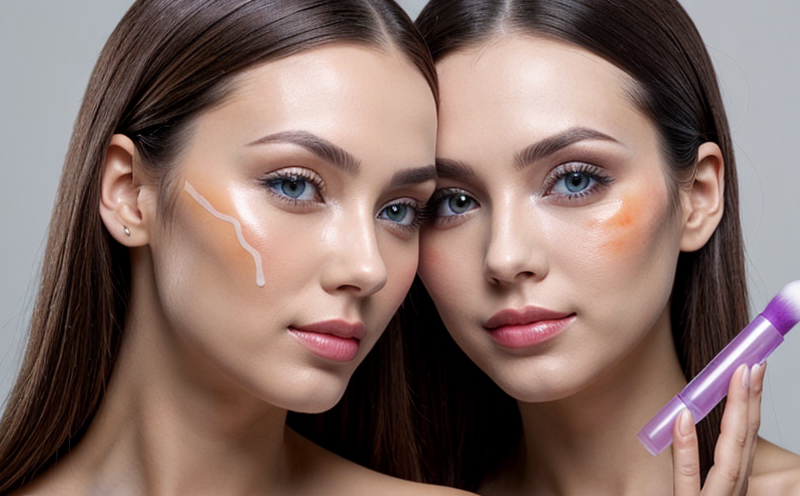ISO 17516 Cosmetic Chemical Content Testing for Safety Requirements
Introduction to ISO 17516: ISO 17516 is a globally recognized standard that provides the procedure for determining the chemical content of cosmetic products. This testing ensures that the product meets stringent safety requirements, thereby protecting consumers from potential harm due to harmful chemicals.
The importance of this test cannot be overstated in the cosmetics industry. Regulatory bodies around the world are increasingly focusing on the chemical composition of personal care products. Compliance with ISO 17516 is not just a legal requirement; it's also crucial for maintaining consumer trust and ensuring product safety. Non-compliance can lead to severe penalties, recalls, and damage to brand reputation.
Scope of Testing: The primary focus of this test is the identification and quantification of specific chemicals in cosmetic products that are known or suspected to be harmful when present at high concentrations. This includes but is not limited to parabens, formaldehyde donors, and other preservatives.
The testing process involves several key steps: sample preparation, analysis using advanced analytical instruments such as HPLC (High-Performance Liquid Chromatography), GC (Gas Chromatography), or LCMS (Liquid Chromatography-Mass Spectrometry), and finally, the interpretation of results against internationally recognized safety limits.
Importance in Compliance: By adhering to ISO 17516 standards, manufacturers can ensure their products meet regulatory requirements. This includes aligning with EU regulations such as REACH (Registration, Evaluation, Authorization and Restriction of Chemicals) and ensuring the product is safe for use by consumers.
Real-World Applications: ISO 17516 testing is crucial in various aspects of the cosmetics industry. For quality managers, it helps maintain consistent product quality. Compliance officers ensure regulatory adherence to avoid legal issues. R&D engineers can utilize this data to innovate safer products without compromising efficacy. Procurement teams can verify that suppliers meet these stringent standards.
Failure to comply with ISO 17516 can lead to serious consequences. Product recalls, lawsuits, and damage to brand reputation are just a few of the potential outcomes. Regulatory bodies such as the European Commission and FDA (Food and Drug Administration) enforce strict rules regarding chemical content in cosmetics. Non-compliance can result in fines and even criminal charges.
In conclusion, ISO 17516 testing is an indispensable tool for ensuring product safety and regulatory compliance. It plays a vital role in protecting consumers from harmful chemicals while fostering trust between manufacturers and their customers. By adhering to these standards, companies can maintain high levels of quality and safety in their products.
Applied Standards
The ISO 17516 standard is widely recognized globally for its stringent approach to cosmetic chemical content testing. This standard is particularly important as it sets the benchmark for ensuring that cosmetics are safe for human use. Compliance with this standard guarantees that the products meet not only local but also international safety requirements.
In addition to ISO 17516, other relevant standards include:
- EN 934-2: Provides guidelines for the analysis of preservatives in cosmetic products.
- ASTM D8073: Offers methods for determining the chemical composition of personal care items.
- IEC 61967: Focuses on electromagnetic compatibility and safety aspects, which are crucial when using advanced analytical instruments in testing.
These standards complement each other, providing a comprehensive framework for ensuring product safety. By adhering to these internationally recognized standards, Eurolab ensures that its clients receive accurate and reliable test results.
Scope and Methodology
The scope of ISO 17516 testing encompasses the analysis of various chemical components in cosmetic products. This includes but is not limited to preservatives, antioxidants, fragrances, and colorants. The primary goal is to identify any harmful substances that could pose a risk to consumers.
Sample Preparation: Before conducting the actual test, samples are prepared according to strict protocols. This involves thorough cleaning of the sampling containers, proper labeling, and ensuring that the sample represents an accurate cross-section of the product being tested.
Instrumentation: Advanced analytical instruments such as HPLC, GC, and LCMS are used in this process. These instruments provide precise measurements of chemical components down to parts per million (ppm) levels. The choice of instrument depends on the specific chemicals being targeted for analysis.
Data Interpretation: Once the data is collected from these instruments, it needs to be interpreted against internationally recognized safety limits. This involves comparing the detected concentrations with thresholds set by standards like REACH and FDA.
The methodology employed ensures that the results are accurate and reliable. It also helps in identifying any potential risks associated with specific chemical components in the cosmetic product. This information is invaluable for manufacturers looking to innovate safer products without compromising efficacy.
Eurolab Advantages
Expertise: Eurolab boasts a team of highly skilled and experienced scientists who are well-versed in the latest testing techniques. This expertise ensures that clients receive accurate and reliable test results every time.
State-of-the-Art Facilities: Our laboratories are equipped with cutting-edge technology, including advanced analytical instruments such as HPLC, GC, and LCMS. These facilities allow us to conduct tests at the highest standards possible.
Comprehensive Reporting: Eurolab provides comprehensive reports that not only list the detected chemical components but also provide insights into their potential risks. This information is invaluable for manufacturers looking to make informed decisions about product safety and innovation.
Rapid Turnaround Time: We understand the importance of timely results in the cosmetics industry. That's why we strive to deliver reports within days, ensuring that our clients can quickly respond to any regulatory or consumer concerns.
Compliance Support: Eurolab offers comprehensive compliance support services. Our team can guide clients through the entire process of becoming compliant with ISO 17516 and other relevant standards.
Sustainability Focus: At Eurolab, we are committed to sustainability. We use environmentally friendly practices in our laboratories and continuously look for ways to reduce our carbon footprint.





